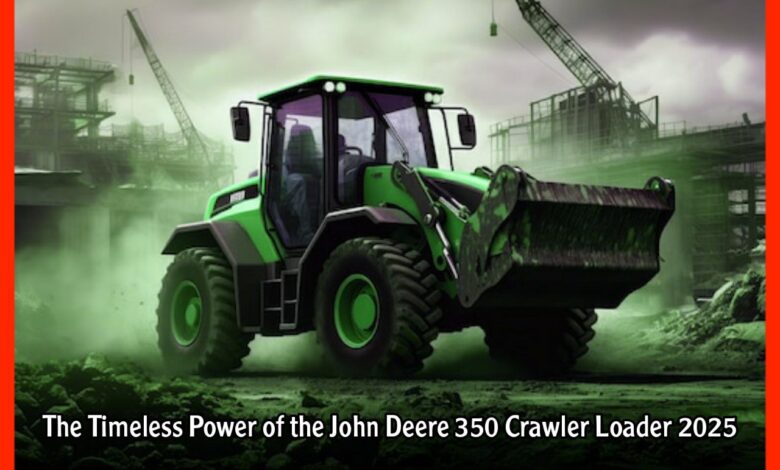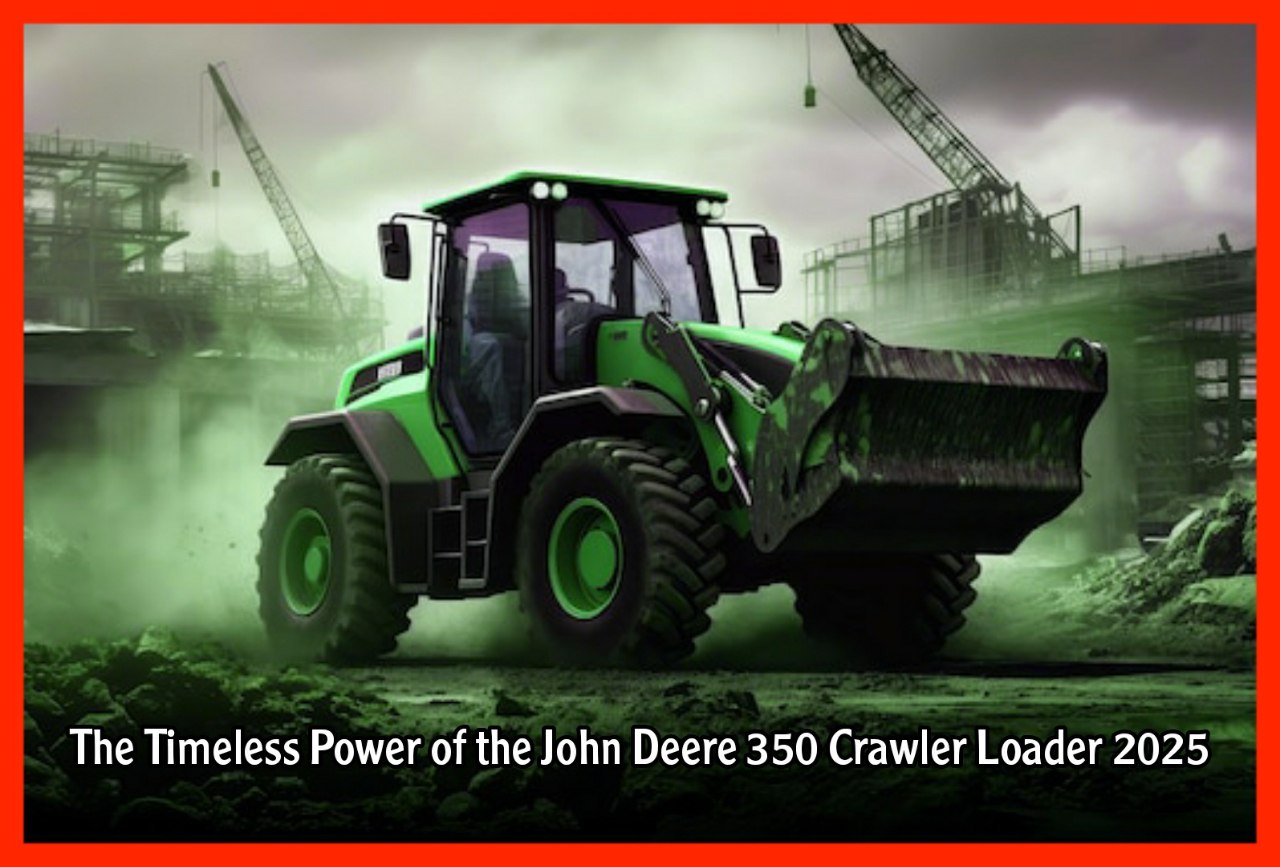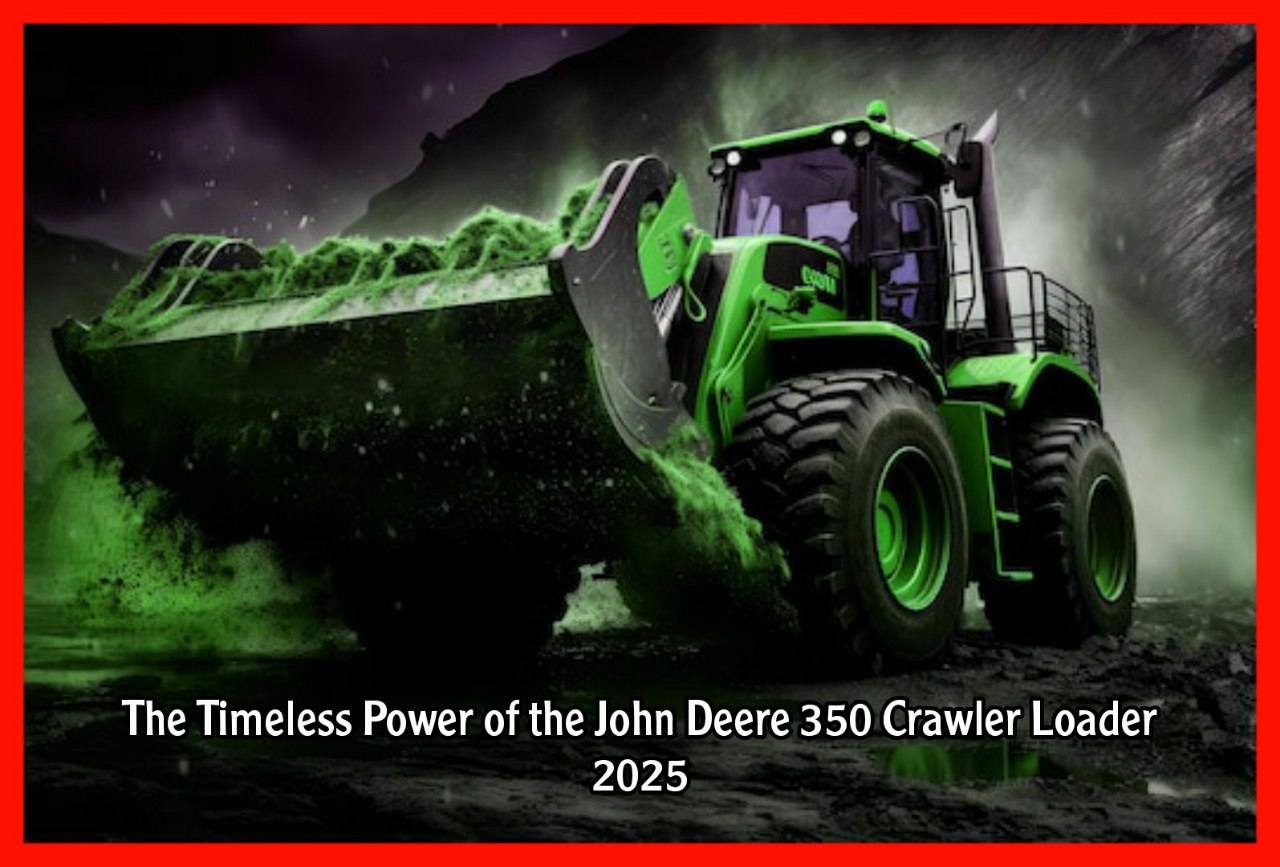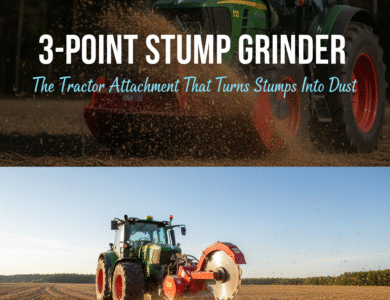The Timeless Power of the John Deere 350 Crawler Loader 2025
The Timeless Power of the John Deere 350 Crawler Loader 2025

The Timeless Power of the John Deere 350 Crawler Loader 2025
From the roaring sounds of diesel to the grit of real earthwork — this machine doesn’t just move dirt, it makes history.

There are machines that work, and then there are machines that live.
The John Deere 350 Crawler Loader falls squarely in the latter camp — a beast born in the late ’60s and early ’70s that still grinds with raw determination today. Whether you’re a heavy equipment enthusiast, vintage machinery restorer, or someone whose heart races at the sight of a tracked loader digging into the ground, this one’s for you.
What Is the John Deere 350 Crawler Loader?
At its core, the John Deere 350 is:
-
A compact crawler loader, built to push, lift, and scoop
-
Powered originally by a 3-cylinder diesel engine (around 42-50 hp)
-
Equipped with a manual or power shift transmission, depending on the model
-
Designed for forestry, construction, and agricultural work
This thing wasn’t made for fluff — it was engineered for functionality. It’s gritty. It’s tough. And it looks like it could dig its way to the center of the Earth if you let it.
“I’ve run newer loaders, but the 350? It’s like driving a tank that grew up on a farm.”
— Carl D., lifelong operator and restoration hobbyist
Features That Made It Legendary
Let’s break it down — what made this loader so iconic?
1. Simple Mechanics
You don’t need a software degree to understand its guts. With basic tools and a bit of elbow grease, you can keep a John Deere 350 running for decades.
2. Tank-Like Durability
Thick steel frames, aggressive tracks, and reinforced loader arms mean this thing was born to take a beating — and come back asking for more.
3. Aftermarket Love
From rebuilt engines to custom buckets, this machine has an entire aftermarket ecosystem. Replacement parts, manuals, and even fan clubs are still thriving online.

Maintenance Must-Knows
Want to keep your JD350 purring like a dragon?
Here’s your essentials checklist:
-
Change the hydraulic filters every 200 hours
-
Grease the loader arms regularly
-
Inspect the track tension monthly
-
Keep an eye on oil seepage around the final drives
Don’t forget: manuals are gold. If you score an original JD350 service manual at a garage sale, protect it like it’s a treasure map. Because it kinda is.
Buying a John Deere 350 Today
You’re probably wondering: Can I still get my hands on one?
Short answer: Yes — but condition and pricing vary wildly.
Here’s a quick look:
| Condition | Price Range | Notes |
|---|---|---|
| Rough, needs work | $2,500–$4,000 | Good for parts or full resto projects |
| Working, unrestored | $5,000–$8,000 | Solid worker, may need minor love |
| Restored/Upgraded | $9,000–$12,000+ | Clean, paint popped, often collector-owned |
The Cult Behind the Crawler
Don’t be surprised if you fall down a rabbit hole after reading this. The JD350 has a passionate fanbase, with dedicated Facebook groups, restoration YouTube series, and forums where 70-year-olds trade tips like mechanics in a bar.
“She might rattle your bones, but she gets the job done every time.”
— Emma K., homesteader and JD350 owner since 1988
The John Deere 350 Crawler Loader isn’t just an old piece of equipment — it’s a legend in steel. In a world where machines are increasingly plastic, digital, and distant, the JD350 stands tall as a gritty reminder of what real machinery feels like.



